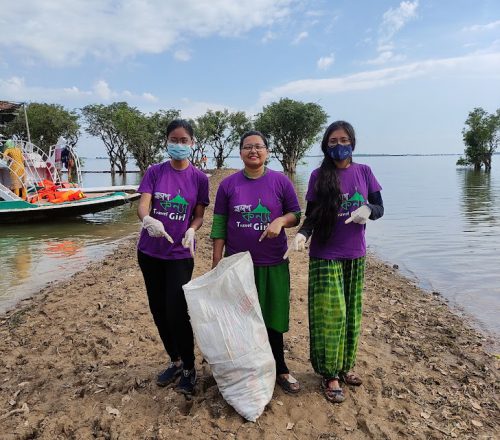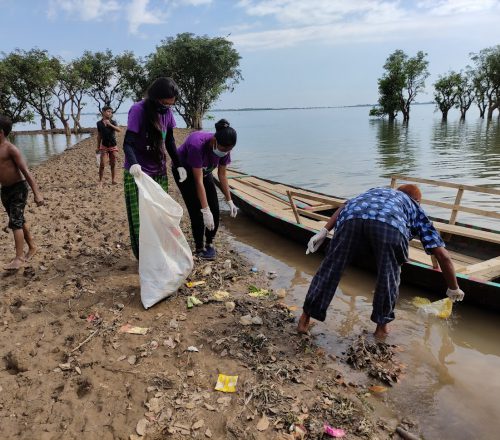Project Clean Travel: Promoting Sustainable and Eco-Friendly Tourism in Bangladesh
According to the Bangladesh Tourism Board, the number of international tourists visiting Bangladesh has been steadily increasing, with over 2.4 million visitors in 2019, a 10% increase from the previous year. Evidently, the tourism industry in Bangladesh has the potential to drive economic growth while simultaneously promoting environmental sustainability and cultural preservation. However, the concerns about its environmental impact are also taking a new height when many of the popular tourist destinations in Bangladesh face the challenges of littering, waste management, water and energy use, and cultural commodification. In addition, the COVID-19 pandemic has further highlighted the need for sustainable tourism practices, as travel restrictions and reduced tourist numbers have impacted the livelihoods of many people in the tourism industry. That’s where the Project Clean Travel by MasterPeace Travelettes, Bangladesh came in with a motive to address these challenges, ultimately serving as a catalyst to SDG 11 and 13.
The Project is aimed at promoting eco-friendly tourism practices and sustainable tourism initiatives. It involves collaboration with tourism operators, government agencies, and community groups to develop and promote sustainable tourism initiatives that benefit the environment and local communities. The project also emphasizes raising awareness among tourists regarding responsible and sustainable travel practices such as reducing waste, conserving natural resources, respecting local cultures, traditions, and supporting local economies.


” We need of more climate leaders from every corner of the globe to build a strategic synergy for actions. “
The project approaches were:
Raising awareness: Educating tourists about the importance of responsible and sustainable travel through awareness campaigns and promotional materials.
Encouraging responsible behavior: Encouraging tourists to follow responsible and sustainable travel practices, such as reducing waste, conserving energy and water, and respecting local culture and traditions.
Community engagement: Engaging with local communities to promote sustainable tourism practices and ensure that tourism benefits the local economy and environment.
Cleanup campaigns: Organizing regular cleanup campaigns in public areas such as parks, beaches, and streets to help remove litter and waste.
Recycling initiatives: Promoting recycling initiatives to help reduce the amount of waste in landfills and encourage a more sustainable lifestyle.
Outcomes
One of the most notable outcomes of the project is the creation of new economic opportunities and jobs in the tourism industry. Sustainable tourism initiatives such as eco-friendly accommodations, local community-based tours, and cultural experiences not only attracted more tourists but also generated more income for local businesses. The regular cleanup campaigns organized by the project ensured that parks, beaches, and streets were kept clean, creating a pleasant environment for tourists to enjoy.
Impact
By encouraging responsible travel practices and sustainable initiatives, this Project has helped to foster a sense of community and social responsibility among the people of Bangladesh, promoting a cleaner and more sustainable way of life. The impact this Project holds is far-reaching, and the successful implementation of the project serves as a model for other regions to promote eco-friendly tourism practices. As climate change has affected many locals in coastal areas as well as other regions, Dr. Shakia Haque and Dr. Manoshi Saha, Founder of MasterPeace Bangladesh highlighted the need of more climate leaders from every corner of the globe to build a strategic synergy for actions.
